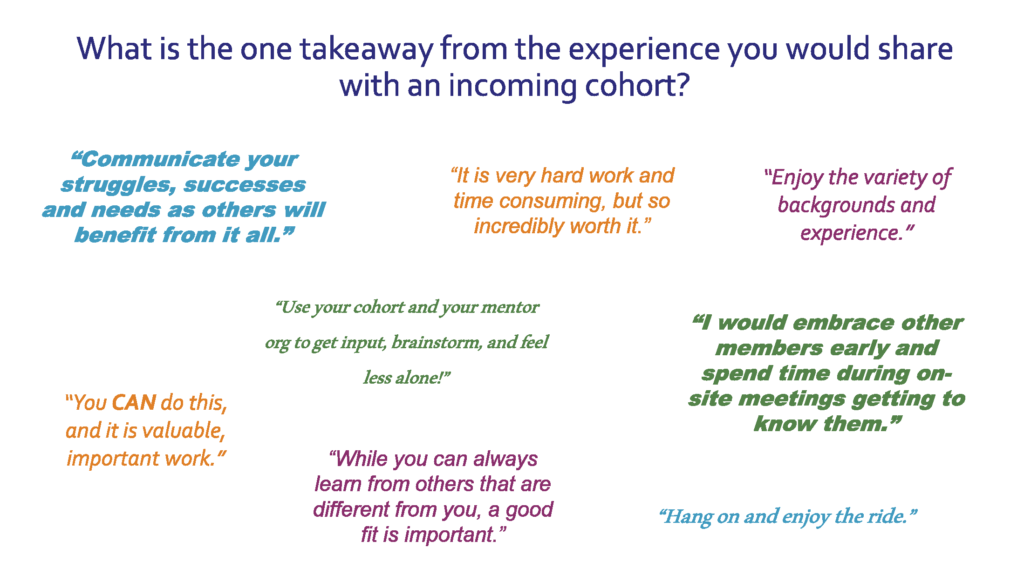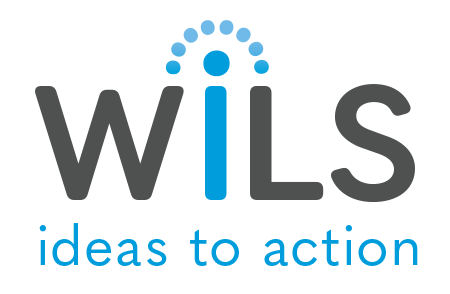
by Ellen Brooks, Community Memory & Digital Archives Consultant
In September of 2020, a second cohort of small, rural, and tribal libraries from around the country embarked on community memory projects thanks to the Accelerating Promising Practices funding opportunity from IMLS. Once again, WiLS is serving as a mentor organization. From September 2020 through August 2022, Emily Pfotenhauer and Community Memory & Digital Archives Consultant Ellen Brooks, with the help of Vicki Tobias, are offering support and cohesion for these projects and their managers.
The 7 organizations participating in the second IMLS APP Community Memory cohort are:
- Aniak City Library (Aniak, Alaska)
- Belfast Free Library (Belfast, Maine)
- Edith B. Ford Memorial Library (Ovid, New York)
- Lakeview Community Library (Random Lake, Wisconsin)
- Moore Free Library Association (Newfane, Vermont)
- Pennsylvania Horticultural Society (Philadelphia, Pennsylvania)
- Twin Lakes Library System (Milledgeville, Georgia)
A lot has changed since we convened in person with the first IMLS APP cohort in November 2019, which we outlined in a previous blog post. Both cohorts wrote their project proposals before the COVID19 pandemic turned things upside down. While cohort one had the chance to kick off their work with an in-person meeting, cohort two’s experience has been completely virtual, starting with two intensive Zoom gatherings in November 2020. Those meetings concentrated on getting to know each other and thinking through the “big picture” of community memory work. During the first meeting, we were joined by a number of respected guests who helped us welcome the cohort, including Crosby Kemper (IMLS, Director), Cynthia Landrum (IMLS, Deputy Director for Library Services), Lisa Frantzen (Partners for Public Good), Morris “Dino” Robinson, Jr. (Shorefront Legacy Center), Meral Agish (Queens Memory Project), and Scott Seyforth (Madison LGBTQ Archive).
Both cohorts have been faced with rethinking and redesigning their projects. Many of them originally involved a number of in-person activities to collect materials (oral history interviews, scanning days, etc.) and showcase their work (roundtables, symposiums, etc.). Without any certainty about when these in-person activities might be able to be resumed, many of the cohort members have forged ahead by pivoting to virtual work when possible. This has meant learning a number of new skills and tools, such as recording remote interviews, facilitating remote meetings and trainings for volunteers and advisory boards, and reallocating resources for these new versions of their projects.

To keep up with cohort projects and engage in discussion around relevant topics, we hold monthly virtual meetings for each cohort. We also do quarterly individual check-ins with each project manager. Another strategy we have leaned on, particularly with the second cohort, is connecting the cohort members not just with each other and with the first cohort, but also with archivists, community engagement librarians, and other experienced practitioners from WiLS’ member network and beyond. For example, we invited Pa Ja Yang, Hmong Family Outreach Specialist at Appleton Public Library, to work with a few of the cohort members to think through effective ways to reach out to newcomers in their communities.
In light of all the challenges COVID19 has brought, one thing that the WiLS team is constantly trying to impress on the cohort members (and ourselves) is that success for these projects does not mean a perfectly curated website or 100 newly cataloged photographs or even a project that can be considered formally complete – success is building the capacity and confidence to do more community memory-based projects in the future. WiLS team members have worked hard to facilitate relationship building and a sense of community, but that can be particularly difficult in a digital space and across multiple time zones. In that way and others, we at WiLS are certainly learning a lot along with our IMLS APP cohorts! We are looking ahead to extended virtual learning opportunities this summer and fall and we still have hope for an in-person meeting before the grant period ends in August 2022.
